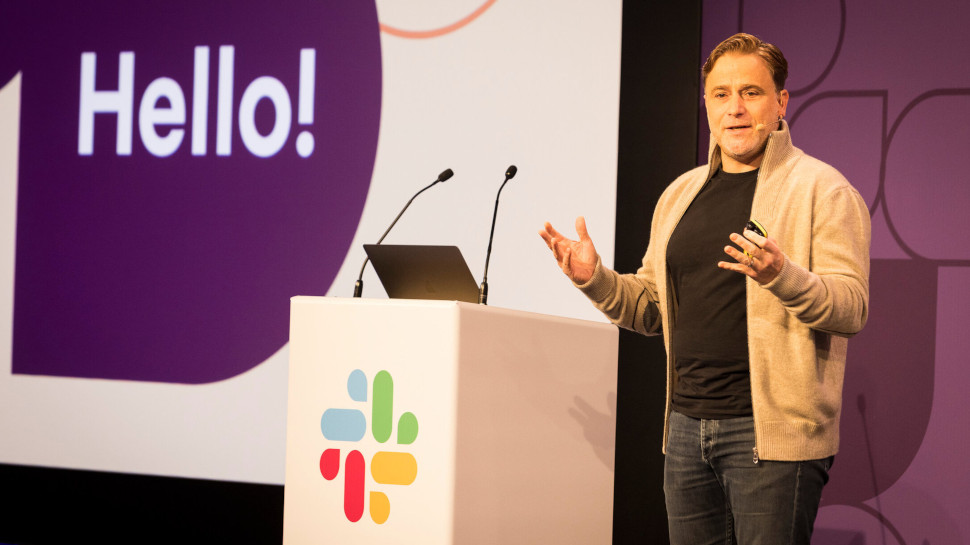The founder and CEO of Slack has reiterated his ambition to replace email as the de facto medium of communication in the workplace.
Speaking during the keynote session at Slack Frontiers in London, Stewart Butterfield highlighted the limitations of the email format, which he says is bound by nature to create opportunities for misunderstanding and miscommunication.
“With email, we each have our own partial, fragmented, incomplete view of what’s going on,” he told the audience. “But if you take all of those email messages and put them inside of channels, now you have somewhere for everything that’s important inside your company.”
Modern collaboration
The drop-off in the value of email has coincided, Butterfield says, with the decline in the significance of physical business headquarters, which have been superseded by what Slack calls the “digital HQ”.
“By digital HQ, we mean the digital infrastructure that supports collaboration; that set of systems and tools and processes that has allowed organizations to continue to work and thrive during the pandemic,” he explained.
“A digital HQ isn’t a nice-to-have, nor even a must-have, but rather something that every organization already has, but could be doing a whole lot more with.”
The importance of optimizing communication and collaboration over digital platforms is borne out clearly in the data, says Slack. According to a survey conducted by the firm, even the employees spending the least time on communication-based tasks are using a third of their day to send messages and emails, attend video meetings and the like.
“With the realization that most of our work is powered by the digital HQ, which is much easier to ‘renovate’ than the physical HQ, we could all be doing more. The message is that we should be continually pushing the boundaries and experimenting, because there are real opportunities for improvement,” added Butterfield.

In an effort to lean into the strengths of its collaboration platform, versus email-based communication, Slack has rolled out a number of new features since the start of the pandemic.
Most recently, the company lifted the lid on Slack Canvas, a tool that gives users a new way to collect, organize and share data across persistent and highly customizable information panels. These so-called “canvases” are attached by default to every channel and can be created manually for one-off projects or events.
Slack also announced last month that it will be bringing video to its impromptu meeting feature, Huddles, the purpose of which is to help cut down on needlessly lengthy meetings by giving customers a lightweight means of checking in with colleagues.
The hope, explained Butterfield, is that features like these will help customers make the most of their digital HQ and put them in a stronger position to take advantage of a period of great opportunity.
“I don’t think the window is closing quite yet, but against the backdrop of so much change, people are willing to tolerate more. So this is a great moment to [experiment and innovate],” he said.
- Also check out our list of the best productivity tools
